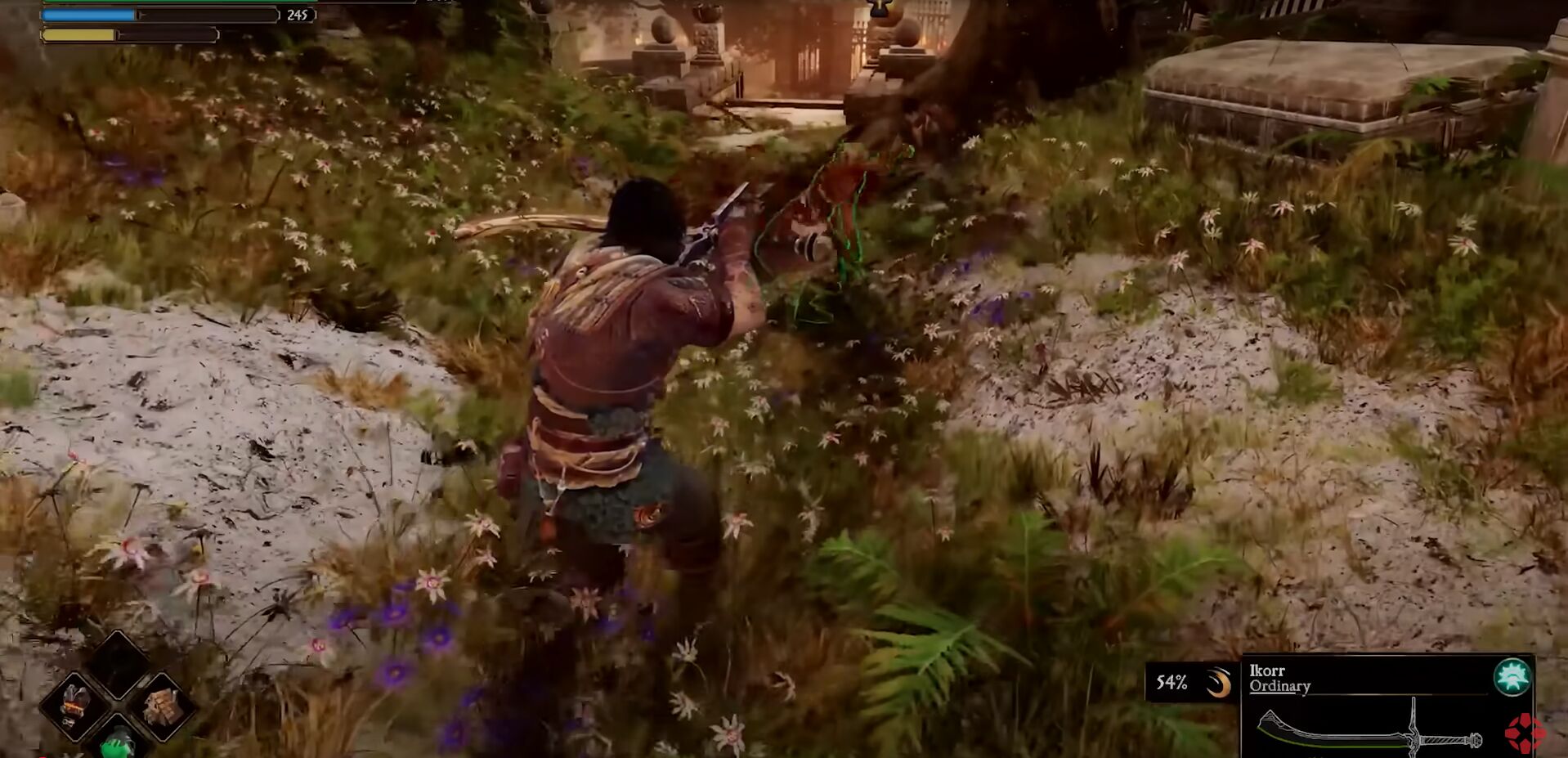Blades of Fire Review — He told me that all my questions would be answered once we found you. I still remember that line. It’s from a moment in Blades of Fire that gave me hope — hope that this game had something deeper to say, something truly worth the grind. Spoiler: it didn’t.
Let’s be clear — I love when a studio steps out of its comfort zone. It’s risky, sometimes reckless, but often the results are magic. That’s why I was hyped when Mercury Steam, the team behind the brilliant Metroid Dread, dropped a 3D action RPG out of nowhere. But Blades of Fire feels like one of those bold swings that never quite connects.
You’re a Blacksmith, Not a Warrior. Cool, Right? | Blades of Fire Review

The premise is actually super intriguing. You’re not some chosen one. You’re a blacksmith — a guy who literally crafts his way through chaos. The world’s falling apart, and the only way forward is to forge your own destiny. That metaphor isn’t subtle, but it’s powerful. You build every weapon you use. That part? Genuinely satisfying.
Forging feels real. Not just menu-clicking — we’re talking about heating, hammering, shaping steel. You’re creating something from scratch. And that “naming your weapon” part? Total nerd candy. I made one called Regret after dying for the fifth time on the same boss. Cathartic.
Combat: Starts Fine, Ends Flat

Unfortunately, all that forging leads to… kinda dull combat. You get directional attacks — up, down, left, right — and that’s it. It’s fun at first, especially when you land a perfect parry and do a flashy counter. But after a few hours, it all starts feeling the same.
There’s no real depth. No combos. No “oh damn” moments. Just slash, dodge, slash again. The enemies don’t help either — mostly humanoid, mostly boring. Even the big guys, like trolls with regenerating health, feel like slightly tankier versions of regular grunts.
And dying? It’s barely a slap on the wrist. Your weapon drops and turns to stone, but you can go grab it again. No real stakes.
The Story Thinks It’s Deeper Than It Is
Now, about that line I opened with — it comes from Adso, your sidekick. He’s like a walking library, full of lore and ancient knowledge. You, Aaron, the blacksmith, are constantly going, “I don’t understand,” while Adso explains everything. At first, it’s kinda cute. Then it gets annoying.
The emotional moments don’t land because the characters just aren’t fleshed out. You meet a flying beetle witch named Glenda (yep), and later, a warrior named Arwin shows up with dramatic fanfare. But none of it hits. They try to go for God of War-style story beats — wise companion, reluctant hero, mystical women — but it all feels like a copy without the heart.
By the time the final act rolls around, you’re stuck in a fetch quest marathon. Honestly, I stopped caring why I was fighting. I just wanted it to be over.
Maps Are Pretty, But Not Helpful
One thing the game does get right is the world design. The environments look fantastic — ruins, snowy mountains, eerie caves. But navigating them? Yikes.
The map is a mess. There’s no sense of height, so you’re constantly guessing whether a path is above you or below you. It kills the momentum. You can place markers to guide you, which sounds cool in theory, but it feels like a patch for a problem that shouldn’t exist.
Final Thoughts: A Missed Opportunity
I wanted to love Blades of Fire. I really did. The blacksmith angle is unique, the forging system is actually fun, and the world has potential. But the combat wears thin, the story drags, and the characters feel more like exposition machines than real people.
It’s not a disaster. It’s just… forgettable. And in today’s world of phenomenal action RPGs, being forgettable is almost worse than being bad.
Would I recommend it? Only if you’re desperate for something new and can overlook shallow combat. Otherwise, there are better fires worth stoking.
Rating: 5.5/10 – All spark, no flame.
- Game of Thrones: Kingsroad Review 2025
- How to Get Hive Fruit in Grow a Garden (Roblox) 2025
- Hidan DLC Review — Naruto Shinobi Striker Season 9
